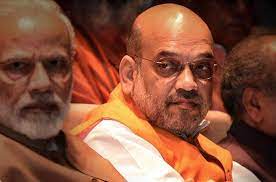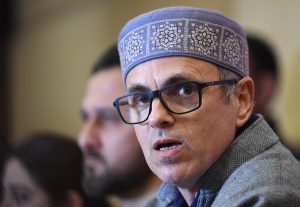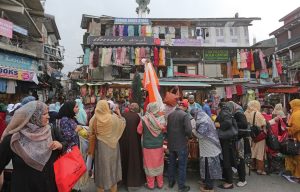
Amit Shah Rebukes Foreign Media Alleging ‘Anti-Muslim’ Laws: ‘Seek the Truth…’
Union home minister Amit Shah defended India’s laws on religion and citizenship amid mounting criticism from the foreign media.
Union home minister Amit Shah has hit back at foreign media for questioning the contentious laws brought in by the Narendra Modi government, particularly those related to religion and citizenship.
Foreign media outlets have been actively scrutinising India’s ban on the triple talaq practice in Islam, abrogation of Article 370 of the Indian Constitution and the Citizenship Amendment Act, which they perceive as “anti-Muslim”.
When pointed out, Shah, in an interview with ANI said, “Ask foreign media, do they have Triple Talaq, Muslim Personal law, provisions like Article 370 in their country.”
The Indian Parliament passed the Muslim Women (Protection of Rights on Marriage) Act, 2019, which criminalised the practice of instant triple talaq and made it punishable by law. Critics feared that the provision for imprisonment of up to three years for pronouncing triple talaq could be exploited to settle personal vendettas or disputes within families. Some contended that such matters should be resolved within the framework of personal laws and religious practices, rather than through criminal legislation.
On August 5, 2019, the Government of India, led by Prime Minister Narendra Modi and home minister Amit Shah, announced the abrogation of Article 370 through a Presidential Order. This effectively revoked the special status accorded to Jammu and Kashmir, India’s only Muslim-majority state. The government also bifurcated the state into two separate Union Territories: Jammu and Kashmir, and Ladakh.
The abrogation of Article 370 was a highly contentious move that generated mixed reactions both domestically and internationally. Critics and opposition parties expressed concerns over the manner in which the decision was implemented, arguing that it was done without proper consultation with the people of Jammu and Kashmir and without their consent.
The Citizenship Amendment Act, 2019, triggered massive protests around the country amid criticism that the legislation was discriminatory in nature.
The CAA provides a pathway to Indian citizenship for undocumented immigrants belonging to specific religious communities from Afghanistan, Bangladesh, and Pakistan. These communities include Hindus, Sikhs, Buddhists, Jains, Parsis, and Christians, who have faced persecution in these countries due to their religious identity.
Critics of the CAA argue that by explicitly excluding Muslims from its purview and linking citizenship to religious identity, the law undermines the secular principles enshrined in the Indian Constitution. Source

